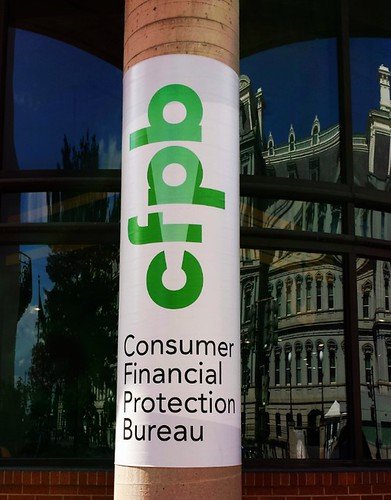
Washington, D.C. – The Consumer Financial Protection Bureau (CFPB) has filed a lawsuit today against Early Warning Services, the operator of Zelle, and three of the nation’s largest banks—Bank of America, JPMorgan Chase, and Wells Fargo—for their failure to protect consumers from pervasive fraud on the popular peer-to-peer payment network. The lawsuit accuses the companies of rushing the Zelle service to market without implementing necessary safeguards, leaving hundreds of thousands of customers vulnerable to scams and fraud.
Since its launch in 2017, Zelle has become one of the most widely used platforms for instant payments between individuals. However, the CFPB claims that its lack of adequate fraud prevention and detection measures has allowed scammers to exploit the system, resulting in significant financial losses for consumers. The lawsuit points to more than $870 million in losses over the past seven years due to fraud on the network.
According to the CFPB’s complaint, consumers have been largely left to fend for themselves after falling victim to fraud, with many reporting being told to contact the fraudsters directly to recover their lost funds. The agency further alleges that Bank of America, JPMorgan Chase, and Wells Fargo failed to properly investigate fraud complaints or offer legally required reimbursements for fraudulent transactions.
Key Allegations of Fraud and Negligence
CFPB Director Rohit Chopra outlined the critical failures in his statement, saying, “The nation’s largest banks felt threatened by competing payment apps, so they rushed to put out Zelle. By failing to put in place proper safeguards, Zelle became a gold mine for fraudsters, while often leaving victims to fend for themselves.”
The CFPB’s lawsuit details several ways in which the banks and Early Warning Services allegedly violated federal law:
- Vulnerable to Scammers: Zelle’s limited identity verification methods allowed fraudsters to quickly create accounts and target unsuspecting users. Scammers often exploited the network’s design to redirect payments intended for a victim’s account to their own.
- Repeat Offenders: The defendants reportedly failed to share information about known fraudsters across banks within the Zelle network. As a result, criminals could exploit multiple accounts across various institutions before being detected, if they were caught at all.
- Ignoring Fraud Complaints: Despite receiving hundreds of thousands of complaints, the banks did not take sufficient action to address fraud or prevent future incidents. They also allegedly violated Zelle’s own rules by not reporting fraud consistently or on time.
- Abandoning Consumers: The banks failed to properly investigate fraud cases or provide the necessary reimbursements under the Electronic Fund Transfer Act and Regulation E. Many victims of fraud were left without resolution, and their complaints were not properly handled. The Consumer Financial Protection Bureau’s Action
The CFPB, empowered under the Consumer Financial Protection Act, is seeking to halt the alleged unlawful practices, secure redress for affected consumers, and impose penalties on the defendants. The lawsuit also aims to hold Early Warning Services, Bank of America, JPMorgan Chase, and Wells Fargo accountable for their role in these failures.
The CFPB’s complaint demands that the defendants be required to make restitution to victims of fraud and other appropriate relief, including a civil money penalty that would go into the CFPB’s victims relief fund.
The Role of Early Warning Services and the Banks
Early Warning Services, based in Scottsdale, Arizona, operates the Zelle network and is co-owned by seven major U.S. banks: Bank of America, Capital One, JPMorgan Chase, PNC Bank, Truist, U.S. Bank, and Wells Fargo. Zelle allows users to send money through email or phone numbers linked to U.S.-based mobile devices. However, the platform’s design, which allows for rapid money transfers and multiple linked accounts, has made it a target for criminals who can easily exploit these features.
The CFPB claims that the defendant banks—each of which is a major player in the U.S. financial industry—failed to implement the necessary safeguards to protect consumers from the growing threat of fraud on Zelle.
Bank of America, JPMorgan Chase, and Wells Fargo together hold more than $7.9 trillion in consolidated assets, making them among the largest and most influential financial institutions in the country. Despite this immense size and reach, the CFPB alleges that these banks did not take the proper steps to protect customers using the Zelle platform, resulting in widespread financial harm.
The Impact on Consumers & What’s Next?
The CFPB’s lawsuit paints a troubling picture of how large financial institutions have mishandled consumer protection in the context of emerging payment technologies. According to the complaint, consumers have been repeatedly left out of pocket with little recourse, often facing significant hurdles to reclaim their funds after falling victim to fraud.
For many users of Zelle, the lack of effective fraud prevention has been frustrating and disheartening. The CFPB’s legal action is part of a broader push to hold financial institutions accountable for their role in protecting consumers from fraud and other forms of financial abuse.
As the lawsuit moves forward, the CFPB is seeking several forms of relief, including:
- Redress for Victims: Compensation for individuals who have lost money due to fraud on the Zelle network.
- Civil Penalties: Financial penalties to be paid into the CFPB’s victims relief fund.
- Injunctive Relief: The CFPB seeks to halt the unlawful practices and compel the defendants to implement stronger consumer protections on the Zelle network.
The outcome of this lawsuit could have wide-reaching implications for the future of peer-to-peer payment platforms, as regulators increasingly scrutinize the safety and security of digital financial services.


